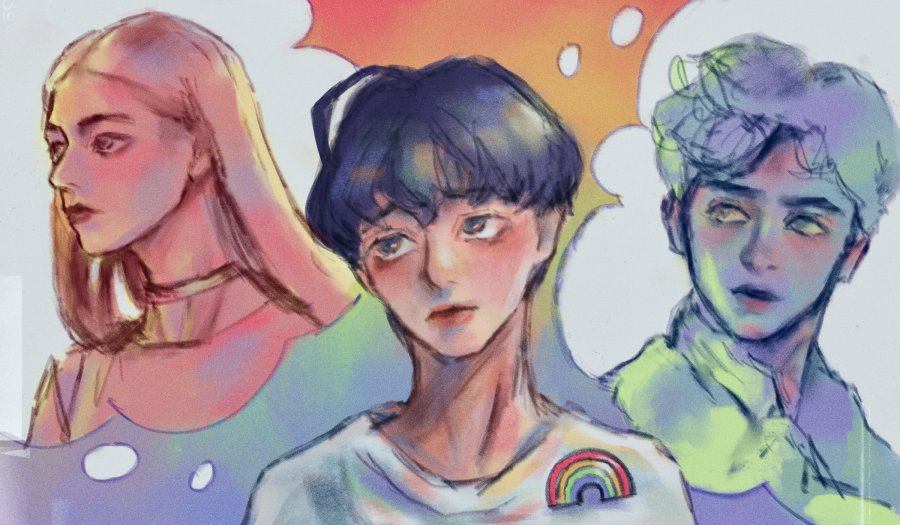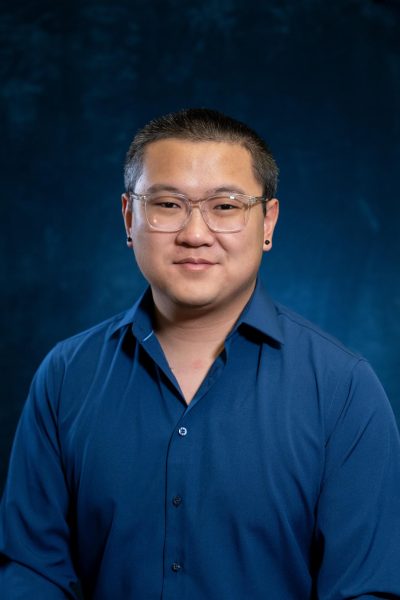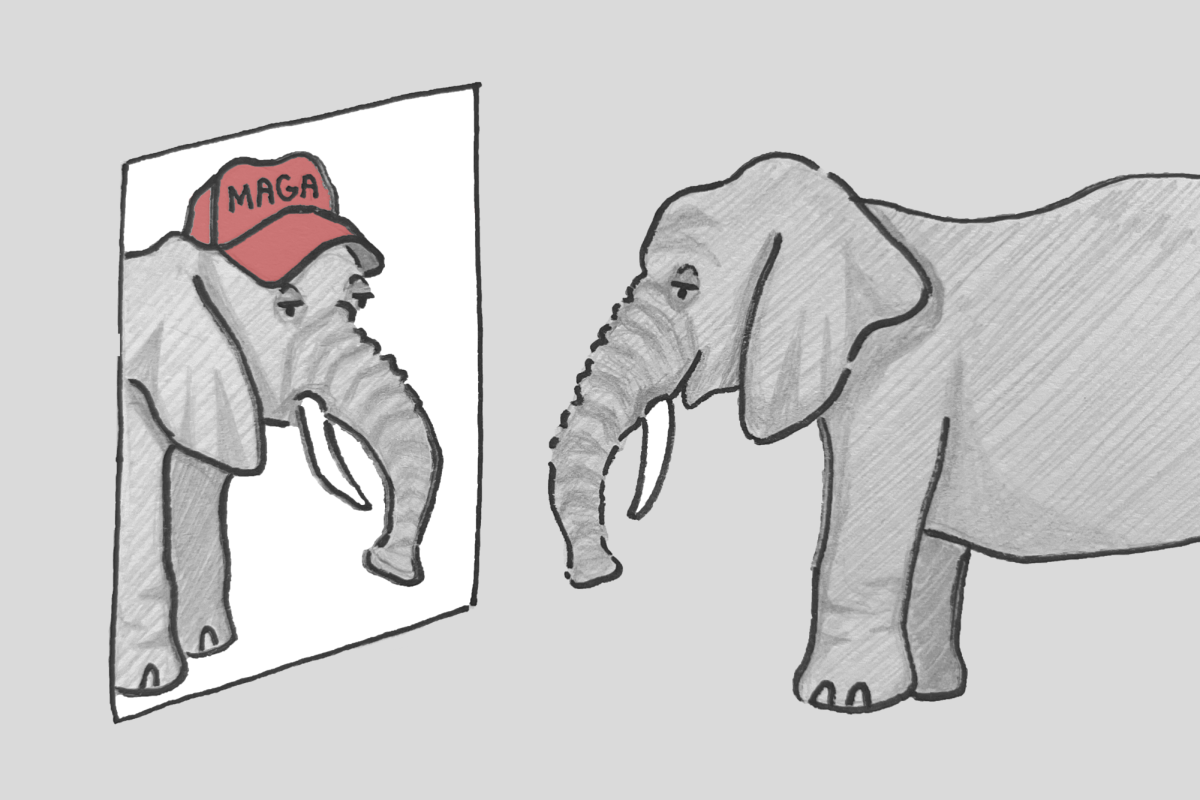In recent years, LGBTQ+ representation in the media has been on the rise. Of the 118 movies GLAAD examined from the major studios in 2019, 22 (18.6 percent) included LGBTQ+ characters, a slight increase of .4 percent from the year before. Movies such as “Call Me By Your Name,” “Brokeback Mountain,” and most recently, “Love, Simon” tell stories of men discovering their sexuality. Although these films were monumental in creating a safe space to tell LGBTQ+ stories, they all share an underlying issue: gay characters were played by straight actors.
From Timothy Chalamet in “Call Me By Your Name” to Darren Criss in “Glee,” straight actors have been cast in queer roles that are renowned by viewers for their performances. These films and shows have not only won multiple awards but also worked to normalize these stories in the media. They also showed other companies that watching queer representation wouldn’t drive away business.
This has paved the way for newer films and shows to have stronger LGBTQ+ representation that wasn’t possible just a couple of decades ago. With that being said, it is crucial that queer roles are played by queer actors because of the emotional depth and experiential nuances that come with being part of the LGBTQ+ community.
Authentic representation should be the objective of telling any queer stories in the media. While it is tempting to cast well-known straight actors to play queer roles for their “star quality,” creating a well-developed and genuine character to represent a minority group in a show or film should be the utmost priority.
Given these new opportunities for queer characters to have a place in entertainment, it is crucial that their stories are portrayed by someone with a similar background, as growing into one’s sexuality or gender identity is an experience that a straight cisgender actor could not replicate to its full extent.
Being in the closet, coming out, and accepting oneself, all while battling internalized homophobia, is a unique experience that the LGBTQ+ community deals with on an intimate level. While the art of acting is about telling a story, which doesn’t necessarily have to be one you have experienced firsthand, a cishet actor is simply unable to fully empathize with and recreate the distinct experiences and emotional complexity of the queer community, let alone portray them in a realistic and genuine manner.
The issue occurs when straight actors take on gay roles and rely on stereotypes to bring these characters to life. For example, James Corden has recently faced criticism for his performance in the Netflix film “Prom.” His portrayal of Barry Glickman, a gay Broadway actor, has been described as “aggressively flamboyant,” “homophobic,” “stereotypical,” and “grossly inappropriate.”
In terms of trans casting in particular, in order to maintain this authenticity, trans actors should be the only actors cast to play these roles.
In 2018, Scarlet Johansson received backlash for agreeing to play a transgender man in the movie “Rug and Tug.” Johansson quit the film after critics said her casting took opportunities from members of marginalized communities, namely transgender actors.
“While I would have loved the opportunity to bring [his] story and transition to life, I understand why many feel he should be portrayed by a transgender person,” Johansson told Out Magazine in July 2018. “I am thankful that this casting debate, albeit controversial, has sparked a larger conversation about diversity and representation in film.”
While sexuality does not have a heavy influence on appearance, being trans often does.
In an interview with the Chicago Tribune, transgender actress and TV writer Jen Richards highlighted the misrepresentation of trans people that occurs when cisgender actors play their roles.
“They think of a man in a wig and makeup. Or a woman in a suit and mustache. Because that’s all they’ve seen. And then they meet actual trans people and we look too much like a regular woman or a regular man and so it doesn’t square with them — and they want their audience to have this very obvious visual of: This is a trans person.” Richards said. “They don’t want their audience to be made uncomfortable. They want to foreground that this is a ‘performance.’”
Not only is the creation of a character important, but also is their portrayal. While transgender actors are able to draw from their experiences and create a three-dimensional character, cisgender actors simply cannot, and in turn they run the risk of misrepresenting an already underrepresented community.
In the second special episode of the HBO series “Euphoria,” Hunter Schafer, who plays Jules, got the opportunity to co-write, co-produce, and storyboard this episode. As a trans actress playing a trans character, Schafer said in an interview with Collider, “I feel it’s reflective of my experience … but I’m thinking about a lot of other things, aside from being trans, most of the time, and that feels really accurate … As a queer trans person, I’m really excited to be exploring queerness as a trans person with Jules, as well.”
Shows such as “Pose” and “Orange Is the New Black” have been praised for their diverse cast, allowing queers actors of color to portray queer characters of color. While not all their LGBTQ+ characters are played by queer actors, the shows offer an authentic representation of marginalized groups.
As a gay man, I have been heavily influenced by queer representation in the media, and when done correctly, it can inspire, educate, and comfort so many people. During the struggle to accept my sexuality, I looked to the media for stories similar to my own. With the fast-growing collection of inclusive films and shows, it is essential to have realistic and authentic representation.
Media psychologist Dr. Dill-Shackleford says that characters are often avatars for us, and we let ourselves feel feelings through them even if we can’t relate to everything they’re going through. Seeing queer stories normalized in the media, portrayed by actors who have a deep connection to the character and story, goes a long way in educating, accepting, and understanding this resilient, strong, and amazing community.
Here’s the bottom line: Queer actors exist. And they should be able to tell queer stories.
Art by Angela Liang for the UC San Diego Guardian














Halle • Feb 8, 2021 at 4:47 pm
I get what you mean, however I think you might have missed the point of the article. I agree that the actor who best fits the role should get the part, but since the LGBTQ+ community is a marginalized group in the film industry, seeing so little representation behind these films and roles that are supposed to illustrate their stories seems unfair. Casting queer actors would lessen the chance of stereotyping since this is often a result of actors and writers who didn’t have these experiences. Since there is no “straight stereotyping” the argument that only straight people will be able to play straight roles doesn’t really work.
I can see where you’re coming from since acting is about skill, but that skill comes from knowing and empathizing with your character. Personally I also believe that the film industry could do much better with diversifying their casts in the future.
Chuck • Feb 7, 2021 at 5:41 pm
The essence of acting is that you are playing someone you are not, and if you are good at it, it shouldn’t matter if you are gay or straight, and what role you are playing.
I can’t imagine Brokeback Mountain starring anyone other than Heath Ledger and Jake Gyllenhaal, they were outstanding in their roles. I say that as a gay man.
The gay community better be careful what it is wishing for. Otherwise we may start hearing that only straight actors can play straight roles. Since those far outnumber gay roles, a lot of gay actors could find themselves struggling for work.
How about gay actors who successfully portrayed straight characters? Are their performances lacking because they’re not straight? If this type of thinking were being followed, we would not have:
Wentworth Miller (Michael Scofield in Prison Break)
Zachary Quinto (Spock on Star Trek)
T.R. Knight (Dr. George O’Malley in Grey’s Anatomy)
Cynthia Nixon (Miranda Hobbes in Sex and the City)
Russell Tovey (George Sands in Being Human)
Neil Patrick Harris (Barney Stinson in How I Met Your Mother)
John Barrowman (Desperate Housewives, Arrow)
Jim Parsons (Sheldon Cooper on The Big Bang Theory)